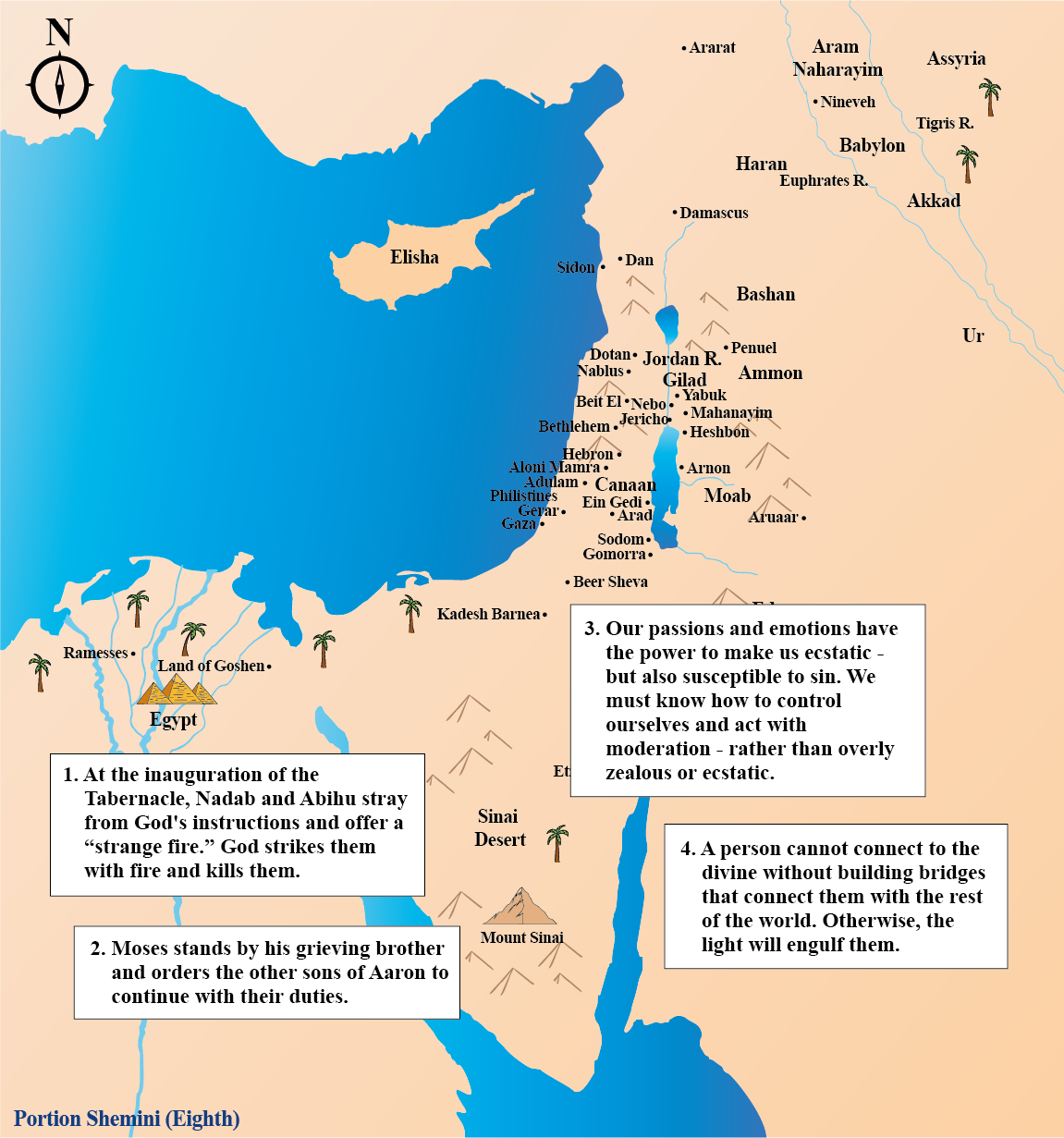
The sons of Aaron die after kindling a “strange fire”
“And Nadab and Abihu, the sons of Aaron, took either of them his censer, and put fire therein, and put incense thereon, and offered strange fire before the LORD, which he commanded them not. And there went out fire from the LORD, and devoured them, and they died before the LORD. Then Moses said unto Aaron, This is it that the LORD spake, saying, I will be sanctified in them that come nigh me, and before all the people I will be glorified. And Aaron held his peace” Leviticus 10:1 – 3
- A tragedy occurs during the inauguration of the Tabernacle. Nadab and Abihu, Aaron’s two older sons, perform a forbidden service and die. Their sin is that they do not act in accordance with what they are instructed and expected to do – they light a “strange fire” (see Leviticus 10:1) that is not part of the Tabernacle’s offerings. A “strange fire” is an act or intention driven by pride and zeal. Sacrifices are tokens of intimacy. Through it, the priest – or any other offerer – becomes closer to the world of sanctity and the divine presence. As such, they must act with responsibility and deference – respecting the established procedure and tradition, and not letting their pride hold sway.
- The story of Nadab and Abihu is a lesson about the price of fanaticism. A person can become too ecstatic and stray from what is appropriate. Fervor can at times be a sign of arrogance. The tragic tale of their death occurs precisely on the day of the inauguration of the Tabernacle.
Moses comforts Aaron in his grief
“And Moses spake unto Aaron, and unto Eleazar and unto Ithamar, his sons that were left, Take the meat offering that remaineth of the offerings of the LORD made by fire, and eat it without leaven beside the altar: for it ismost holy: And ye shall eat it in the holy place, because it is thy due, and thy sons’ due, of the sacrifices of the LORD made by fire: for so I am commanded” Leviticus 10:12 – 13
- Following the death of Aaron’s two oldest sons, Moses once again positions himself as a great leader. He laments his brother’s loss, consoles him, and gives him guidelines for how to mourn this tragedy. Moses tries to encourage his brother and give him words of comfort and inspiration so that the sacrificial service can continue. After all, this task is not only a privilege – it is a duty. We must not elude our spiritual mission. Moses sees to it that Aaron’s sons be buried properly. Later, to prevent the next tragedy, he gives clear instructions for how one must conduct themselves inside the Tabernacle. Moses finds a balance that helps him to provide emotional support while also enabling the sacrificial services to continue uninterrupted.
Pearls of Divine Wisdom: “The Eighth Day”
- Our passions and emotions can make us ecstatic – but also susceptible to sin. We must be moderate and not overly zealous or fanatic.
- A person cannot connect to the divine without building bridges that connect them with the rest of the world. Otherwise, the light will engulf them. Only through the right means can we reach out to others, expand our influence, and amplify light in the world.
- Leaders of society must be selfless, humble, and devoted to their people. The death of Nadab and Abihu is a warning.
- We must never elude our spiritual mission, even in times of crisis. At a certain stage of a person’s spiritual journey, it becomes necessary to spread the light – and stopping can be a sin for which we will be held accountable in the afterlife.
- Finding equilibrium between the obligation to fulfill our mission, on the one hand, and the need to be sensitive and humane, on the other, is a divine recipe for coping with tragedy.

Caution is “pausing” between our natural reactivity and chosen positive action.

